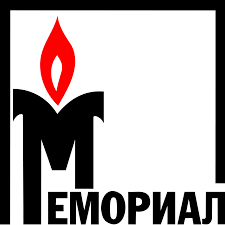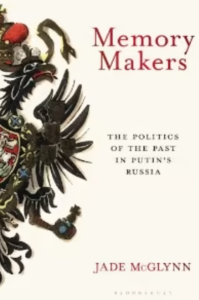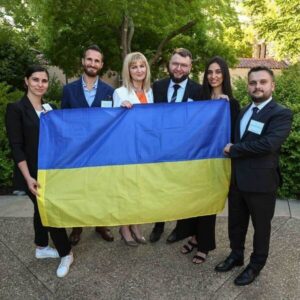 Three months before Vladimir Putin’s full-scale invasion of Ukraine in February 2022, an article appeared in the Russian press under the headline “Where has chaos gone? Unpacking instability,” The FT’s Tony Barber writes:
Three months before Vladimir Putin’s full-scale invasion of Ukraine in February 2022, an article appeared in the Russian press under the headline “Where has chaos gone? Unpacking instability,” The FT’s Tony Barber writes:
The author was Vladislav Surkov, a politician and former Putin aide who for many years played what in Soviet times was known as the role of chief ideologist. In his article, a breathless combination of pseudoscience, historical generalisations and amateur political philosophy, Surkov set out the case that “entropy”, or social decay, in closed political systems should not be addressed with liberal reforms as they risked destabilising the apparatus of power. Instead, “chaos” should be exported abroad.
However, the idea implicit in Surkov’s argument — that Russia in many ways still acts and thinks like an empire, having not shaken off its tsarist and Soviet legacies — is broadly shared by Sergei Medvedev and Jade McGlynn, the authors of ‘A War Made in Russia’ and ‘Memory Makers’, two of the most penetrating studies of the Russian state and society to have appeared since the invasion of Ukraine, he notes in a must-read review.
Ukraine holds the initiative
Recent gloomy reports of the war are “overdone,” says leading military strategist Lawrence Freedman. There is still uncertainty about how the current round of fighting will develop. Ukraine still holds the initiative, he writes. But the challenges are real and it does Ukraine no favours to suggest that they can easily be overcome. The basic problem, however, is the one that has been present from the start. Bringing this war to an end is a political as well as a military process, and the political process we understand least is in Moscow.
 The shutdown of the Sakharov Center is just one of the latest steps in a relentless campaign by the Russian state to stifle civil society and silence dissent amid the full-scale invasion of Ukraine, notes Steve Gutterman, the editor of RFE/RL’s Russia/Ukraine/Belarus Desk:
The shutdown of the Sakharov Center is just one of the latest steps in a relentless campaign by the Russian state to stifle civil society and silence dissent amid the full-scale invasion of Ukraine, notes Steve Gutterman, the editor of RFE/RL’s Russia/Ukraine/Belarus Desk:
The closure is an example, as is the ongoing trial of Oleg Orlov, a leader of the Memorial Human Rights Center, which was shut down by court order in December 2021. Memorial has long been at the heart of efforts to establish historical truth, and in the crosshairs of the Kremlin as a result.
With a presidential election looming in seven months, so is the increasing pressure on Golos, a group that has monitored elections and tracked voting fraud claims since the early 2000s, and the prosecution of its co-chairman Grigory Melkonyants.
The killing of Yevgeny Prigozhin may reveal that snuffing out potential political rivals is more important to Putin than any geopolitical sacrifices further from home, argues Max Abrahms, Ph.D., a professor of political science at Northeastern University and author of Rules for Rebels: The Science of Victory in Militant History. It also undercuts a prominent argument propagated by Western war enthusiasts in June—that Putin will back down when threatened, he writes for Newsweek.
 The overall outcome of the two months since the Wagner mutiny is that even though Prigozhin has already lost, Putin is still struggling to win, says analyst
The overall outcome of the two months since the Wagner mutiny is that even though Prigozhin has already lost, Putin is still struggling to win, says analyst
The Russian leader turned out to be unable to address some of the fundamental underlying causes that sparked the Wagner crisis, he writes for The Moscow Times. He failed to deal with Prigozhinism in the minds of the people and in the ranks of his own elite. Neither did he sufficiently “Prigozhinize” his own policies and rhetoric by taking a more uncompromising approach to winning the war.
 Medvedev reminds the reader at times of Fyodor Dostoyevsky’s observation of Russia – “In Europe we are hangers-on and slaves, but in Asia we are masters” – with his own insight that Russia over the centuries has presented an external appearance of imperial power, vast territory, cathedrals, palaces, high culture, the atomic bomb and space exploration, but “on the inside, which the world does not see . . . there is slavery, boorishness, theft, lies, tyranny and the inescapable cruelty of Russian life,” The FT’s Barber adds.
Medvedev reminds the reader at times of Fyodor Dostoyevsky’s observation of Russia – “In Europe we are hangers-on and slaves, but in Asia we are masters” – with his own insight that Russia over the centuries has presented an external appearance of imperial power, vast territory, cathedrals, palaces, high culture, the atomic bomb and space exploration, but “on the inside, which the world does not see . . . there is slavery, boorishness, theft, lies, tyranny and the inescapable cruelty of Russian life,” The FT’s Barber adds.
While there is no reason to think that Russia’s economy is on the brink of collapse, the ruble’s recent depreciation has highlighted just how much pressure the war – and the sanctions imposed in response to it – has placed on Russia’s economy. Now, the West must go even further, Sergei Guriev writes for Project Syndicate.
Recent leaks seem to reflect an effort to convince Ukrainian president Volodymyr Zelensky to come to the negotiating table with Russia, thereby implicitly conceding the loss of some territory to Moscow, says Dov S. Zakheim, a senior adviser at the Center for Strategic and International Studies and vice chairman of the board for the Foreign Policy Research Institute.
 Unless the White House is itself behind these leaks — and it has denied that it is — the most meaningful way it can demonstrate its credibility is to continue to stand foursquare behind Zelensky’s refusal to negotiate; to maintain its vocal support for Ukraine’s ongoing fight for its freedom and independence; and to provide Kyiv the wherewithal to continue to do so., he writes for The Hill.
Unless the White House is itself behind these leaks — and it has denied that it is — the most meaningful way it can demonstrate its credibility is to continue to stand foursquare behind Zelensky’s refusal to negotiate; to maintain its vocal support for Ukraine’s ongoing fight for its freedom and independence; and to provide Kyiv the wherewithal to continue to do so., he writes for The Hill.
Join Stanford’s Center on Democracy, Development and the Rule of Law to meet CDDRL’s six Strengthening Ukrainian Democracy and Development (SU-DD) Fellows (above). Monday, August 28, 2023. 12:30pm to 3:30pm PT RSVP
The killing of #Prigozhin may reveal that snuffing out potential political rivals is more important to #Putin than any geopolitical sacrifices further from home. https://t.co/jzLl2MJJUS
— Democracy Digest (@demdigest) August 25, 2023







